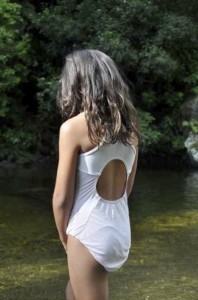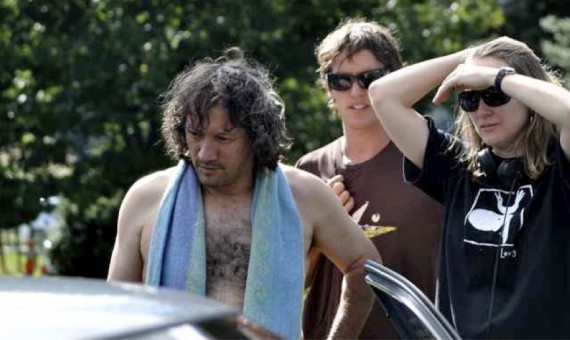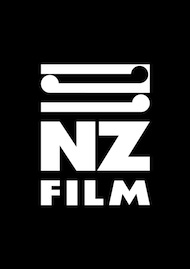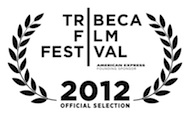Director’s Notes
On What Attracted Me to the Film
Whakatiki’s themes are powerful and universal, yet at the same time the story is firmly rooted in New Zealand and the characters are all Maori. I met and worked with a lot of Kiwis in Sydney, but before moving to New Zealand I didn’t know much about Maori culture. Whakatiki combined my passion for strong narrative with a desire to learn more about Maori culture – relationships and responsibilities within whanau (family), beliefs and values, traditions versus modern day pressures, connectedness to place and past. All relevant to Kiri’s story and how I chose to tell it. The cast were a huge resource in my developing knowledge and I am grateful to them for the generosity they showed me.
From the outset I felt a strong sense of responsibility to Kiri and her story. I wanted to do it justice. I wanted to create an intimate, authentic portrayal of a woman held captive, as much by herself, as by her external circumstances. Within the constraints of the short film medium my challenge was to create a believable set of characters with a sense of history and context. It was important to me that I handled the film’s themes, characters and relationships with a light touch and an absence of sentimentality. While Kiri’s journey is a challenging one, it is also uplifting, and I hope that audiences will share the joy I feel when the fiercely independent spirit of young Kiri is awakened in Kiri the woman.
The lyrical, almost spiritual nature of the river setting had instant appeal in terms of story and character and the opportunities it afforded DOP, Marty Williams, and myself to create two very different worlds – the world above water and the world below.
I knew from the start that sound was going to be hugely important to creating a strong sense of place as well as deepening the audience’s understanding and involvement with character and I was fortunate to work with sound designer, Ray Beentjes, and composer, Tom McLeod, in realising the soundscape for the film.
On Casting
Our greatest challenge was always going to be casting the role of Kiri. We needed an obese Maori woman who could not only act, but who could meet the physical and emotional challenges of the role.
With a background in children’s television, Mabelle Dennison was not the obvious choice but she is so perfect for the part of Kiri that the role could well have been made for her. During auditions Mabelle left us speechless with the scenes she prepared and the thought she had already given to the broader themes of the story. This positive start blossomed during rehearsals and I knew that we had made the right casting choice. Mabelle is a real pleasure to work with. Absolutely comfortable in her own skin. Generous, intelligent, intuitive. I feel very proud of her and the work she did on our film. Mabelle’s television credits include a lead role in the Gibson Group television drama, Paradise Cafe, a dialogue role in the 2010 Cervical Smear Television Advertising Campaign and roles in the telefeatures, The Tale of Tangiwai, Clear, and drama series, The Strip.
For the role of Kiri’s husband, Dan, I needed a senior actor with the gravity to match Mabelle. I wanted to create an authentic married couple and quickly convey a sense of history between them. Short films always present a challenge in terms of establishing relationships and portraying a sense of history but I knew that this was really important if I was to create a believable set of circumstances in which to tell Kiri’s story. It was also imperative to me that characters were three-dimensional – I wasn’t interested in creating a stereotypical bad guy. Friend and fellow film maker, Costa Botes, having directed Jim Moriarty in the feature film, Saving Grace, approached Jim (a notoriously difficult man to track down) with the script for Whakatiki and what turned out to be a good sell on me! Jim is an actor and theatre director who has worked on stage and screen since the 1970’s. He is well known for his performance as a Vietnam War veteran in John Broughton’s Michael James Manaia, which toured New Zealand and played at the Edinburgh Festival. After I talked with Jim about my vision for the film, and we got to know each other a little better, Jim agreed to play the role of Dan. I was delighted! He brings great presence to the film.
Mabelle and Jim are supported by the talented Jason Te Kare as Dan’s friend Seb, and Stephanie Matuku plays Seb’s beautiful cousin, Josie. Jason has appeared in various theatre, television and film roles since graduating from New Zealand Drama School, Toi Whakaari, in 2001. In 2006 Jason won “Best Newcomer” at the Chapman Tripp Theatre Awards. Stephanie’s screen experience includes the 2008 Gibson Group telefeature, Aftershock.
The children play pivotal roles in Whakatiki, particularly young Kiri and Boy. They are potent symbols of hope and innocence.
Young Kiri presented another casting challenge as we needed to find a “water baby” who was a good match for adult Kiri. It was unlikely that conventional casting sessions were going to uncover a perfect match so we turned to local schools. I picked Alyssa Mataiti from a talented bunch of eight year old girls from St Joseph’s Primary School in Upper Hutt – the same school that our writer, Bernadette, attended! She is a beautiful little girl, with a depth and self-containment to her that I knew was perfect for young Kiri. Like her character, Alyssa spends a lot of time getting lost in the wonder of the river and the native bush in Upper Hutt.
Boy is played by Mabelle’s son, Christian Dennison, seven years old at the time of filming. An obvious, perfect choice.
Whakatiki also features several boys from Te Rakau Hua o Te Wao Tapu Trust, including Daarian in the role of young Kiri’s brother. Committed to theatre as a tool for change, Jim Moriarty was a founding member of Te Rakau Trust, established in 1989. Te Rakau is the longest surviving Maori Community Theatre and Theatre in Education company in New Zealand. Te Rakau utilises the unique form of ‘theatre marae’ to work in marginalised and mainstream communities. Te Rakau also delivers a residential therapeutic recovery program for at risk rangatahi (youth). The boys’ surnames have been omitted from the film for privacy reasons.






